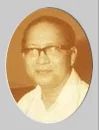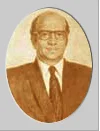An economist by profession, Dr. Manmohan Singh (born 26 September 1932) was the Governor of the Reserve Bank of India from 1982 to 1985, the Deputy Chairman of the Planning Commission of India from 1985 to 1987 and the Finance Minister of India from 1991 to 1996. He is also a Rajya Sabha member from Assam, currently serving his 4th term.
Manmohan Singh is a graduate of Punjab University, the University of Cambridge, and the University of Oxford. After serving as the Governor of the Reserve Bank of India and the Deputy Chairman of the Planning Commission of India, Singh was appointed as the Union Minister of Finance in 1991 by then-Prime Minister Narasimha Rao. During his tenure as the Finance Minister, Singh was widely credited for carrying out economic reforms in India in 1991 which resulted in the end of the infamous Licence Raj system. Dr. Singh, along with the former Finance Minister, P. Chidambaram, have presided over a period where the Indian economy has grown with an 8–9% economic growth rate. In 2007, India achieved its highest GDP growth rate of 9% and became the second fastest growing major economy in the world.
Following the 2004 general elections, Singh was unexpectedly declared as the Prime Ministerial candidate of the Indian National Congress-led United Progressive Alliance. He was sworn in as the prime minister on May 22, 2004, along with the First Manmohan Singh Cabinet. After the Indian National Congress won the 2009 general elections, Singh was reappointed as the Prime Minister of India on May 22, 2009.
Singh’s government has continued the Golden Quadrilateral and the highway modernization program that was initiated by Vajpayee’s government. Singh has also been working on reforming the banking and financial sectors and has been working towards reforming public sector companies. The Finance ministry has been working towards relieving farmers of their debt and has been working towards pro-industry policies. In 2005, Singh’s government introduced the VAT tax that replaced the complicated sales tax. In 2007 and early 2008, inflation became a big problem globally.
India held general elections to the 15th Lok Sabha in five phases between 16 April 2009 and 13 May 2009. The results of the election were announced on 16 May 2009. Strong showing in Andhra Pradesh, Rajasthan, Maharashtra, Tamil Nadu, Kerala, West Bengal and Uttar Pradesh helped the United Progressive Alliance (UPA) form the new government under the incumbent Singh, who became the first prime minister since Jawaharlal Nehru in 1962 to win re-election after completing a full five-year term. The Congress and its allies was able to put together a comfortable majority with support from 322 members out of 543 members of the House. The oppossition having accepted defeat admitted that the specific targeting of Singh as ‘weak PM’ was wrong and had benefited Singh instead.This lead to infighting in the BJP and criticism of Mr.Advani by many prominent leaders of the BJP. The tally of 322 seats included those of the UPA and the external support from the Bahujan Samaj Party (BSP), Samajwadi Party (SP), Janata Dal (Secular) (JD(S)), Rashtriya Janata Dal (RJD) and other minor parties.
On 22 May 2009, Manmohan Singh was sworn in as the Prime Minister at the Asoka Hall of Rashtrapati Bhavan. As is the norm, earlier, on 18 May 2009, he submitted his resignation as the Prime Minister to President Pratibha Patil.






















![]() IIFL Customer Care Number
IIFL Customer Care Number ![]() IIFL Capital Services Support WhatsApp Number
IIFL Capital Services Support WhatsApp Number